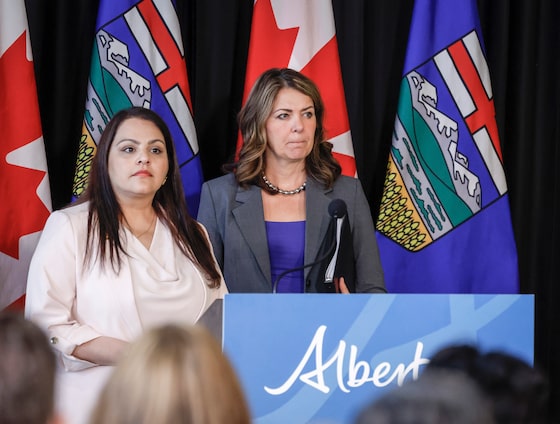Calgary’s prominence in North American relations took a significant step forward yesterday with the launch of a new research hub focused on Canada-U.S. relations. The Alberta government announced the establishment of this center amid growing recognition of our province’s crucial role in cross-border trade and diplomacy.
Standing before a crowd of business leaders and academics at the Telus Convention Centre, Premier Danielle Smith emphasized Alberta’s unique position. “Our province sits at the crossroads of North American commerce. This research hub will strengthen our voice in continental discussions while creating opportunities for Calgary businesses,” she stated during the morning ceremony.
The new center, formally named the Alberta-U.S. Relations Research Institute, represents a $7.5 million investment over three years. It aims to produce policy research and strategic analysis on trade relationships, energy cooperation, and border management that directly impact Albertans.
Dr. Maria Thompson, a University of Calgary economist appointed as the institute’s inaugural director, spoke with me after the announcement. “Calgary has always played a crucial role in Canada-U.S. relations, particularly in energy and agriculture. This institute acknowledges that reality while providing the research backbone needed for evidence-based advocacy,” she explained.
The timing feels particularly relevant. Just last month, I covered growing tensions over Canadian lumber exports and ongoing pipeline negotiations that affect thousands of Calgary jobs. Local business owners have expressed frustration over what they perceive as insufficient attention to western Canadian priorities in Ottawa’s approach to U.S. relations.
“We need Alberta-specific data and analysis when navigating American markets,” said James Woodward, president of the Calgary Chamber of Commerce. “This institute fills a critical gap for businesses here trying to understand regulatory changes across the border.”
The research hub will operate in partnership with the University of Calgary but maintain administrative independence, allowing it to respond quickly to emerging policy challenges. Initial research priorities include studies on cross-border energy infrastructure, agricultural trade barriers, and workforce mobility between Alberta and neighboring U.S. states.
Critics, however, have raised concerns about potential political influence. Opposition leader Rachel Notley questioned whether the institute would maintain true academic independence. “While we support enhanced research capacity, Albertans deserve assurance that findings won’t be influenced by political agendas,” she noted in a statement released shortly after the announcement.
Dr. Thompson addressed these concerns directly. “Our credibility depends entirely on producing rigorous, unbiased research. We’ve established governance structures specifically designed to protect academic freedom while ensuring relevance to Alberta’s priorities.”
The institute arrives at a critical moment for Calgary’s economic future. With downtown office vacancy rates still hovering around 30 percent, city leaders have emphasized the need for economic diversification beyond traditional oil and gas sectors. International trade represents a significant opportunity, with the U.S. remaining Alberta’s largest export market.
Calgary Mayor Jyoti Gondek, speaking at the launch, highlighted potential municipal benefits. “This research will support our economic strategy by providing Calgary businesses with crucial insights for expanding their American market presence,” she said.
The center will also create opportunities for Calgary’s academic community. Graduate fellowships and research positions will be established, potentially attracting and retaining talent in our city. Dr. Thompson indicated plans to hire eight research fellows and support staff within the first year of operations.
“We’ve seen too many bright minds leave Calgary during economic downturns,” observed University of Calgary President Ed McCauley. “This institute creates compelling reasons for experts in international relations and trade policy to build careers here.”
From my perspective covering Calgary’s business scene for over a decade, this initiative addresses a longstanding gap. When reporting on how U.S. policies affect local companies, I’ve frequently encountered a shortage of Alberta-specific analysis. Business leaders regularly tell me they struggle to translate broader Canadian diplomatic positions into practical implications for their operations.
The institute plans to publish its first policy papers by early summer, focusing initially on energy infrastructure cooperation and supply chain resilience. Public forums and stakeholder consultations will follow, with the goal of establishing the center as a recognized voice in North American relations by year-end.
Whether this initiative delivers meaningful benefits to everyday Calgarians remains to be seen. The true measure of success will be whether the research translates into tangible economic opportunities and policy wins for our province. As someone who’s documented Calgary’s economic journey through boom and bust cycles, I’ll be watching closely to see if this investment yields the promised returns.
In a city still navigating its post-pandemic identity and economic future, the launch represents a small but potentially significant step toward establishing Calgary as more than an energy headquarters – but as an intellectual hub for continental relations as well.







